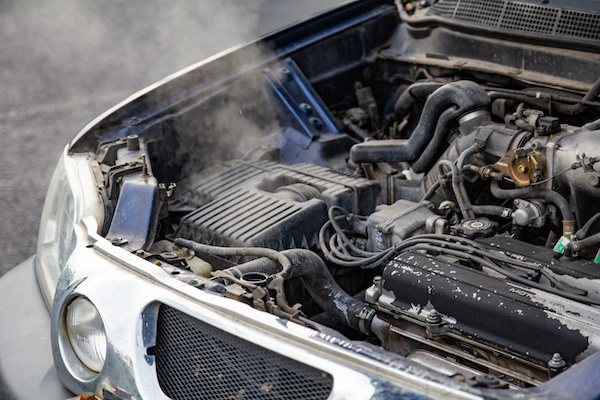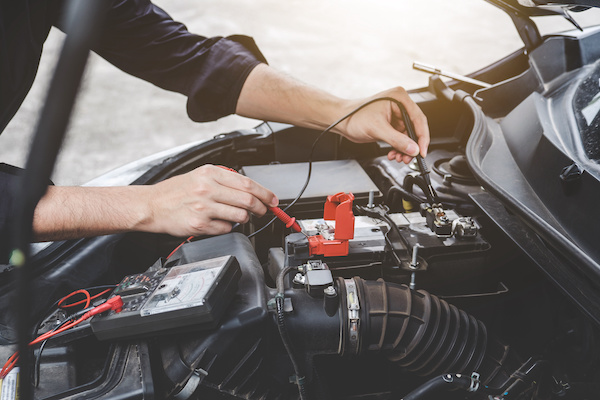Posted on 7/2/2025

As the 4th of July approaches, many drivers gear up for a road trip to visit family, see fireworks or enjoy a summer getaway. Before you hit the highway, it’s smart to give your vehicle a little extra attention to help avoid roadside headaches during your holiday weekend. Tire Health First, check your tires. Inspect the tread depth and look for any uneven wear or sidewall damage. Don’t forget to check the spare tire, too, in case you need it on the road. Proper tire inflation is crucial for handling and fuel economy, especially when driving on hot summer asphalt. Brake Care Next, make sure your brakes are in good condition. If you hear any squealing, grinding or feel vibrations while braking, have them checked before you go. Holiday traffic can mean sudden stops, and you’ll want full confidence in you ... read more
Posted on 6/25/2025
.jpg)
Regular tire rotations are one of the simplest—and most effective—ways to extend the life of your tires. It can also improve handling and maintain even tread wear. While many vehicle manufacturers recommend rotating your tires at specific mileage intervals, the ideal schedule can vary based on driving conditions, tire type and your vehicle’s alignment. Here’s what every driver in Northern Delaware needs to know. Manufacturer Guidelines vs. Real-World Driving Most owner’s manuals suggest rotating tires every 5,000 to 7,500 miles, often coinciding with oil change intervals. Following this baseline is a good starting point, but it assumes normal driving conditions on smooth roads. If you regularly tow, carry heavy loads or encounter rough surfaces, your tires may wear unevenly at a faster rate—and benefit from more frequent ro ... read more
Posted on 6/18/2025
.jpeg)
You may have heard the term “lifetime fluid” used to describe certain types of transmission fluid, coolant or power steering fluid in newer vehicles. While the idea of never having to change these fluids might sound appealing, the reality is more complicated. At Fox Run Auto, we want drivers to understand what “lifetime” really means—and why regular automotive fluid checks are still essential. “Lifetime” Doesn't Mean Forever When manufacturers label a fluid as “lifetime,” they typically mean it’s designed to last the expected life of the vehicle under ideal conditions. But real-world driving conditions—like stop-and-go traffic, extreme temperatures, towing or short ... read more
Posted on 6/11/2025

An overheating engine is one of the most stressful situations a driver can face—especially if you’re caught in traffic or far from help. At Fox Run Auto, we’ve helped many drivers in Bear, Delaware recover from overheating issues. Here’s what to do if it happens to you. First, Don't Panic If you notice the temperature gauge rising into the red or see steam coming from under the hood, safely pull over as soon as possible. Turn off the engine to prevent further damage. Turn Off the AC. Turn Off the Heat. If you’re still driving and looking for a safe place to stop, shut off the air conditioning and turn your heater on full blast. This helps draw heat a ... read more
Posted on 5/21/2025

A dead car battery can ruin your day—especially when it happens at the worst possible time. At Fox Run Auto, we believe a little battery know-how can go a long way in preventing surprises and extending the life of your vehicle’s battery. Most car batteries last about 3-5 years, but several factors can shorten their lifespan. Extreme temperatures, short driving trips and poor maintenance habits are some of the biggest culprits. Fortunately, there are a few simple steps you can take to maximize battery performance and longevity. 1. Drive Regularly and for Longer Distances Short trips don’t give your alternator enough time to recharge the battery fully. If you mostly take short drives, try to mix in longer trips to keep the battery healthy. 2. Keep It Clean Corrosion on battery terminals can disrupt the con ... read more